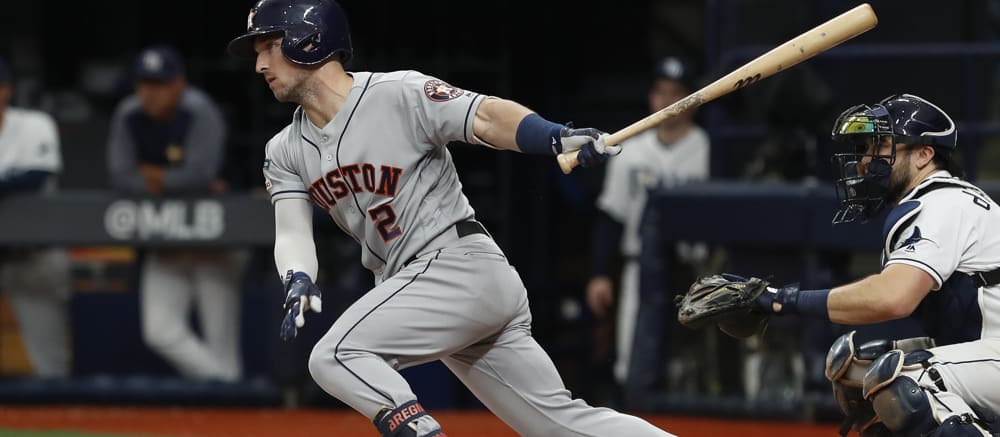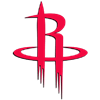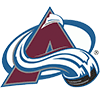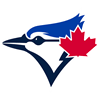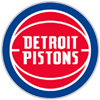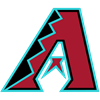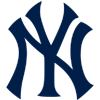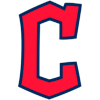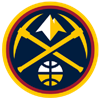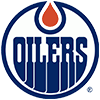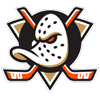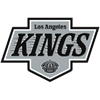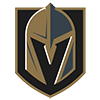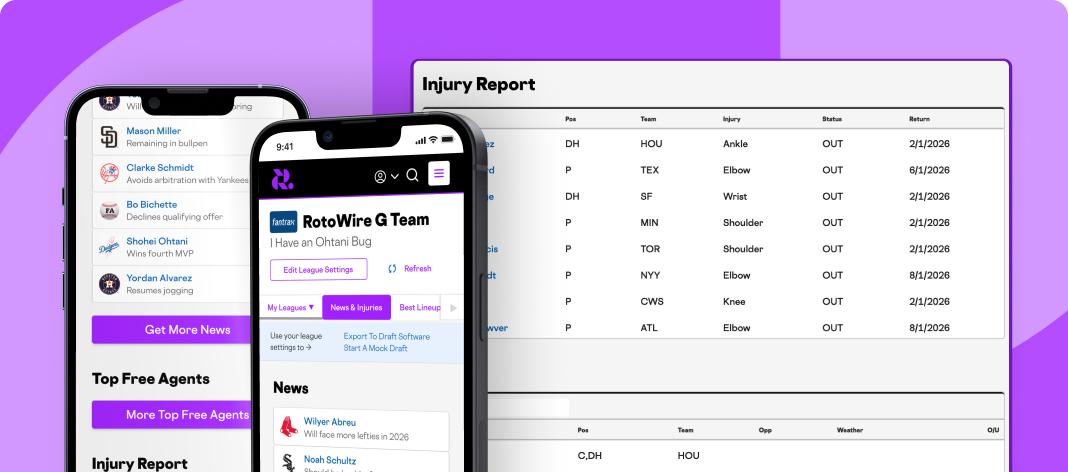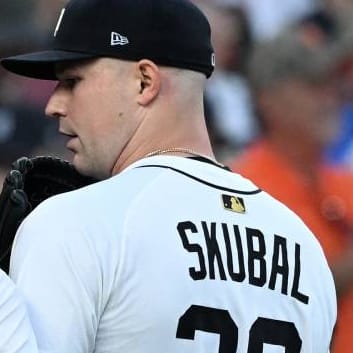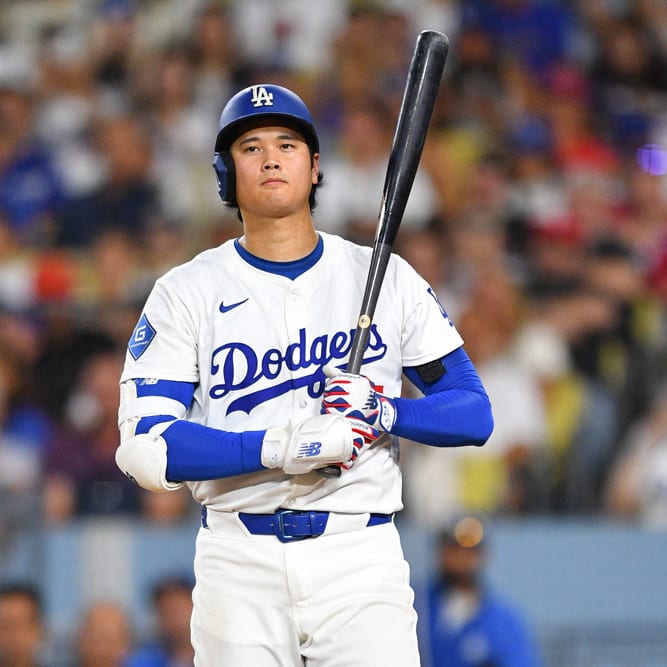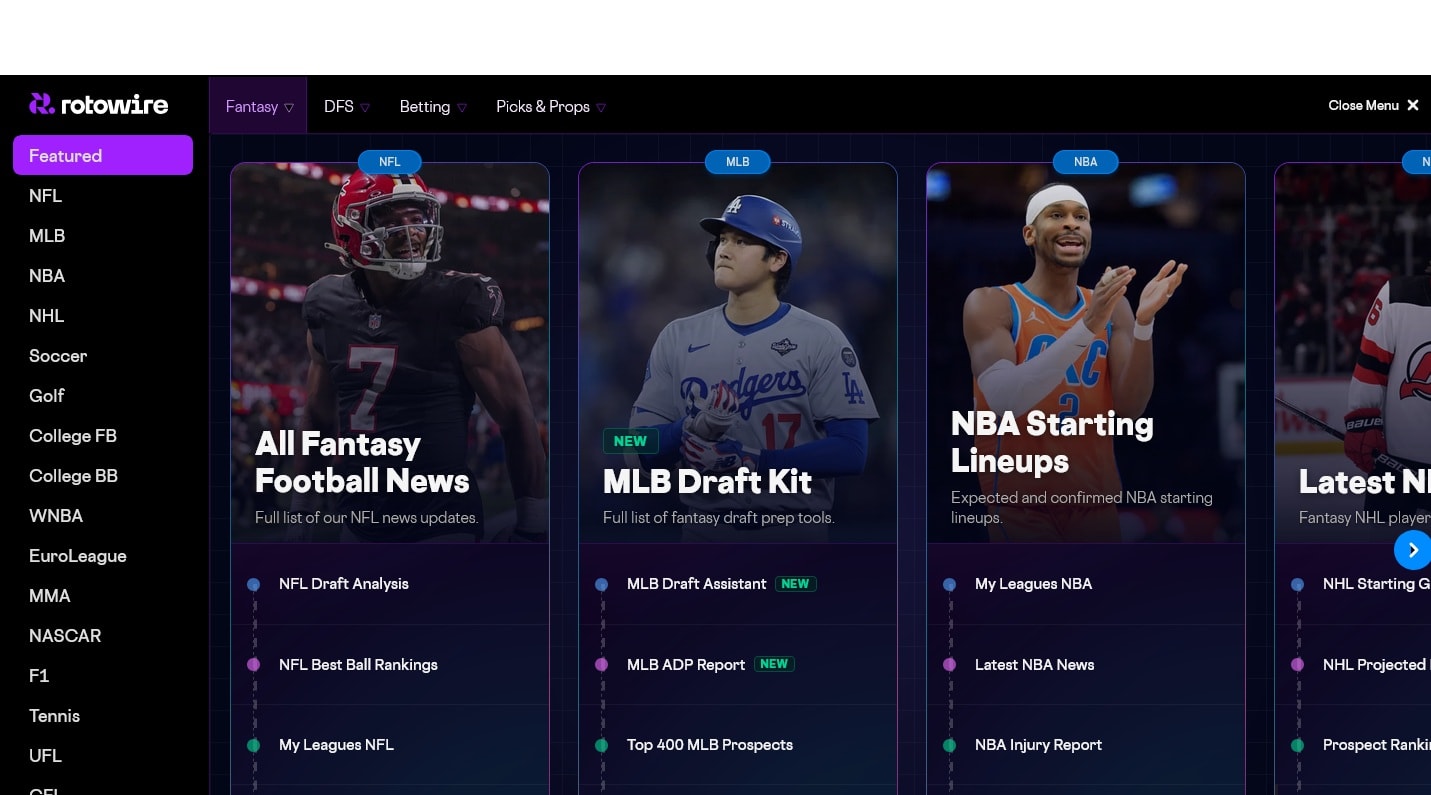The premise for this year's series was laid out in the first installment, so please review it. ADP references are looking at Draft Champions leagues in 2021 and 2022 (over last 30 days). Auction values are based on standard 15-team league formats.
Houston Astros
Alex Bregman is once again a top 50 player
Player | 2021 ADP | 2022 ADP | 2021 Earned $ | 2022 Projected $ |
A. Bregman | 46 | 98 | $4 | $19 |
Bregman is coming off consecutive subpar offensive seasons, and these are only being labeled as such because his previous work set such a high bar for expectations. His 2018 and 2019 were monster seasons, then came the offseason news about the Houston scandal, and Bregman has since put up a 121 wRC+ and a 115 wRC+ after consecutive seasons over 150. 2020 was what it was, but 2021 involved a wrist issue that required Bregman to have corrected with surgery in early November. That issue popped up after he missed two months with a strained quad injury. Both of those injuries came after a hamstring issue which led to him missing 18 games in 2020. This has been a frustrating run of injury luck for a guy who had previously avoided the injured list in the first three-plus seasons of his career reminding us that health is a skill until it is not.
Bregman turns 28 this season and is still one of the most difficult hitters in the league to strike out and is very accepting of the
The premise for this year's series was laid out in the first installment, so please review it. ADP references are looking at Draft Champions leagues in 2021 and 2022 (over last 30 days). Auction values are based on standard 15-team league formats.
Houston Astros
Alex Bregman is once again a top 50 player
Player | 2021 ADP | 2022 ADP | 2021 Earned $ | 2022 Projected $ |
A. Bregman | 46 | 98 | $4 | $19 |
Bregman is coming off consecutive subpar offensive seasons, and these are only being labeled as such because his previous work set such a high bar for expectations. His 2018 and 2019 were monster seasons, then came the offseason news about the Houston scandal, and Bregman has since put up a 121 wRC+ and a 115 wRC+ after consecutive seasons over 150. 2020 was what it was, but 2021 involved a wrist issue that required Bregman to have corrected with surgery in early November. That issue popped up after he missed two months with a strained quad injury. Both of those injuries came after a hamstring issue which led to him missing 18 games in 2020. This has been a frustrating run of injury luck for a guy who had previously avoided the injured list in the first three-plus seasons of his career reminding us that health is a skill until it is not.
Bregman turns 28 this season and is still one of the most difficult hitters in the league to strike out and is very accepting of the walks should pitchers choose to pitch around him. The latter is rather unlikely to happen with Yordan Alvarez hitting behind him in the lineup while Bregman will once again have Jose Altuve and Michael Brantley setting the table in front of him. Simply put, Bregman is incredibly well insulated in this lineup with the opportunity to once again put up big fantasy numbers. The double-digit steals total is very likely a thing of the past coming off consecutive leg injuries as well as hitting in front of Alvarez, but if his body does not fail him again, 30-plus homers and 100-plus runs and RBI are absolutely back on the table for a player who has seen his ADP decline in a big way after living in the second or third round of drafts from 2018-20.
Phil Maton combines to save/win 10-plus games
Player | 2021 ADP | 2022 ADP | 2021 Earned $ | 2022 Projected $ |
P. Maton | 668 | 745 | -$6 | $NV |
This prediction is not any type of foretelling about Ryan Pressly as much as it is me being impressed with what I saw from Maton last season. He has a career 26% strikeout rate as a major-league reliever and struck out 85 batters in 66.2 innings of work last season. The ratios are not great because he has had issues with walks and those runners have come around to score more often than not. If you had never seen Maton pitch, you are likely envisioning a young fireballer who is still trying to figure things out, and that is where you would be wrong.
Maton is 29 and heading into his sixth major-league season. He throws a below-average fastball by velocity as he averages just 92 mph with the pitch, but everything else about his fastball and breaking ball is top 10th percentile stuff with 95th percentile whiff rate and action on his pitches. That combination of skills, should Maton find better command of it, could allow him to take a significant step forward. Look at what he did earlier in 2021 against St. Louis:
and how he looked in the World Series against Atlanta:
The script behind Pressly in the bullpen is not untouchable with Ryne Stanek returning and the club adding Hector Neris and his volatility to the equation. The Houston rotation is not exactly full of pitchers who work 6-7 innings every night out, but the offense is one that should keep the club in many games whether the pitcher is doing well or not, providing middle relievers with a chance to come in and hold the score and potentially pick up a win or even a save depending on matchups and Pressly's availability.
Los Angeles Angels
Matt Thaiss is a top 30 catcher
Player | 2021 ADP | 2022 ADP | 2021 Earned $ | 2022 Projected $ |
M. Thaiss | 714 | 621 | $NV | $NYP |
This one requires some projection given Thaiss does not even qualify as a catcher to begin the season. He was a catcher in college, but the Angels moved him to first base after selecting him from the University of Virginia with the 16th pick of the 2016 draft. He has fewer than 200 plate appearances at the big-league level with little to show for it but has hit well in Triple-A being very accepting of his walks while controlling his strikeouts. Thaiss has profiled with an above-average hit tool and power, so the move from first base back to catcher could get interesting if he is able to stick at the big-league level. It would appear that he and Chad Wallach will compete for the backup job behind Max Stassi. While both players have a remaining minor-league option, it is Thaiss who has the most offensive upside of the two and hits lefty while Stassi hits righty.
The current 30th catcher by ADP is Seattle's Luis Torrens whose ADP sits at 377 over the past month. Thaiss has to hit enough to make the team and then get enough games at catcher in your league format for things to get interesting because there is no other path to value for him as he is not an everyday corner guy. If you are in one-game qualifying leagues, I would argue Thaiss has more value than some players already at catcher, meaning you should prioritize him as a reserve pick. In NFBC standard formats, it would be an exercise in patience with the thin reserve roster and the premium of each one of those spots. In a Draft and Hold format, you can do what I did in my most recent draft, taking Thaiss near the end of the 46th round as my fourth catching option behind Tyler Stephenson, Gary Sanchez and Cal Raleigh.
Michael Lorenzen is a top 150 pitcher
Player | 2021 ADP | 2022 ADP | 2021 Earned $ | 2022 Projected $ |
M. Lorenzen | 423 | 536 | -$11 | -$4 |
The Angels have already guaranteed Lorenzen a rotation spot, so he enters the season on the high ground rather than needing to climb his way up the depth chart. That is something given he has but 26 games started over seven major-league seasons and 21 of those came as a rookie back in 2015 before he ran into a ridiculous amount of bad luck with injuries for a guy so well-built:
- 2016 - sprained elbow ligament
- 2018 - strained shoulder
- 2021 - Grade 3 hamstring strain and shoulder strain
He has an above-average fastball by both velocity and movement along with five other pitches by pitch classification which have performed inconsistently in recent years:
| PITCH | YEAR | # | BA | xBA | SLG | xSLG | WHFF% |
| 4-Seam | 2019 | 276 | .246 | .203 | .525 | .402 | 29% |
| 4-Seam | 2020 | 202 | .075 | .081 | .075 | .116 | 34% |
| 4-Seam | 2021 | 126 | .205 | .208 | .333 | .330 | 20% |
| Slider | 2019 | 127 | .280 | .276 | .560 | .456 | 46% |
| Slider | 2020 | 106 | .105 | .131 | .263 | .289 | 52% |
| Slider | 2021 | 66 | .250 | .220 | .341 | .289 | 41% |
| Changeup | 2019 | 253 | .108 | .130 | .230 | .195 | 45% |
| Changeup | 2020 | 108 | .269 | .235 | .500 | .367 | 45% |
| Changeup | 2021 | 88 | .250 | .226 | .450 | .301 | 26% |
| Cutter | 2019 | 344 | .250 | .276 | .294 | .386 | 24% |
| Cutter | 2020 | 105 | .467 | .331 | .700 | .506 | 17% |
| Cutter | 2021 | 141 | .296 | .301 | .370 | .732 | 31% |
Lorenzen attacks righties with the four-seamer, cutter and slider with some sinkers mixed in while swapping out the slider for the changeup when pitching to lefties. I bring that up to say he has enough of a repertoire to work as a starter should his body hold up and allow him to do so. We know he can work as an effective reliever as he did in 2017-19, but a jump to the rotation is made possible both by his repertoire and how he takes care of his body even if it does not take care of him. If he can rediscover the form of his 2020 slider to go along with his 2019 cutter and changeup, things could get rather interesting here. Lorenzen has done all the things necessary to be a starting pitcher, but just has not done them all in the same season. Like with Thaiss, a very late pick in a draft and hold format is warranted here and I took him 49.03 in my most recent draft. At worst, he is the second-best two-way player on this roster. If none of this impresses you, watch this interview of him from a year ago:
Oakland Athletics
Matt Chapman is a top 10 third baseman
Player | 2021 ADP | 2022 ADP | 2021 Earned $ | 2022 Projected $ |
M. Chapman | 119 | 201 | $10 | $14 |
The last two seasons have been tough to watch if you are an A's fan or just a fan of Chapman the player. The elite defender at third base has struggled offensively after trending in a positive direction his first three years in the league. The last two seasons have still been above average by wRC+, but the batting average has dropped precipitously as the strikeouts have worsened. The strikeout rate is puzzling given Chapman lowered his strikeout rate in both years two and three, but it spiked dramatically between 2019 and 2020 and did not recover this past season as he became the first player in franchise history to strike out at least 200 times.
A 200-strikeout hitter typically has a profile of a free swinger unwilling to accept walks with little strike zone discipline, but neither of those attributes applied to Chapman in 2021 (91st percentile walk rate and an 82nd percentile chase rate). He simply swung and missed a lot (8th percentile) around a rather excellent barrel rate (89th percentile.) Chapman's .210 batting average was third-worst among qualified hitters last season, trailing only Eugenio Suarez and Joey Gallo while only the latter had a lower xBA than Chapman. His in-zone contact rate was better than only Gallo and Javier Baez, yet only slightly worse than the likes of Randy Arozarena, Tyler O'Neill and Shohei Ohtani while his overall swing-and-miss rate on all pitches was on par with Adam Duvall, Ozzie Albies, Dansby Swanson, Austin Riley, Mitch Haniger and Giancarlo Stanton. What gives?
In recent years, Chapman has developed a hole in his approach against all pitches, but in particular, breaking stuff. While it improved in 2021 from 2020, it is still essentially back to where he was as a rookie:
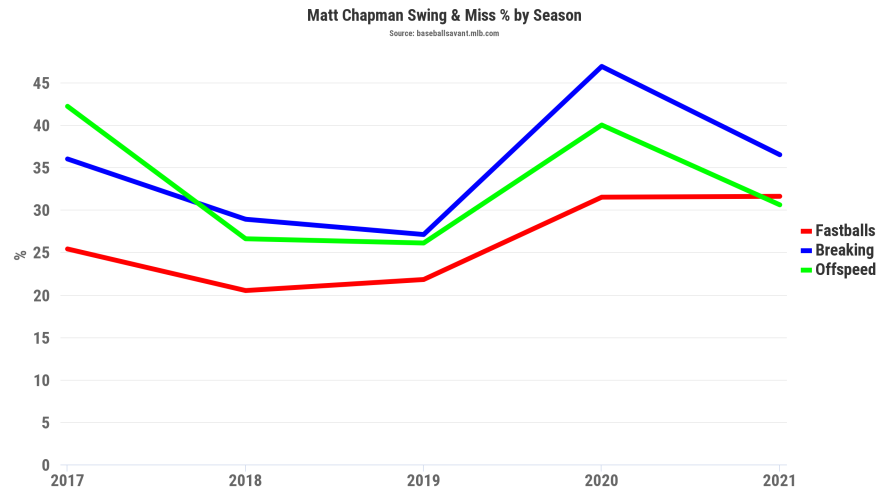
The league is never slow to find holes in swings and exploit them, so Chapman has been fed an increasing diet of breaking stuff over the past two seasons, and he has struggled to adjust, particularly with sliders in the zone:
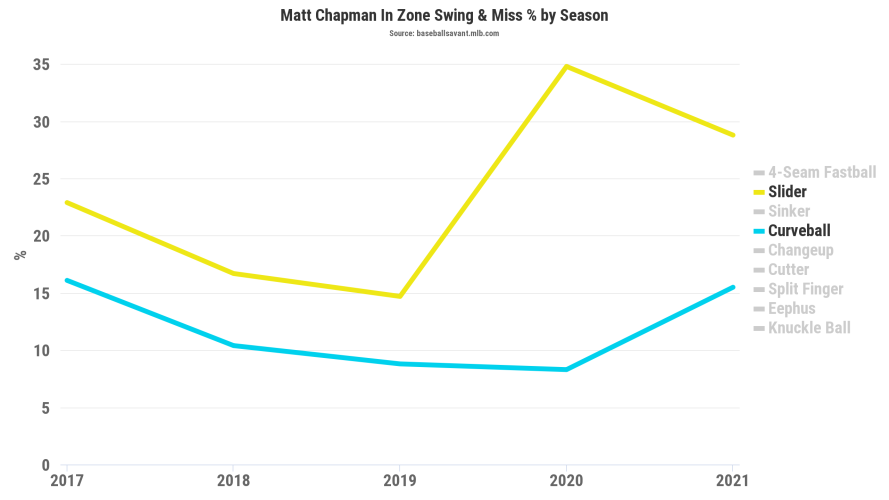
I believe his pending departure from the club is a big factor with Chapman. He was drafted and developed by Oakland and is two years away from becoming a free agent, putting him in the prime range for Billy Beane sending him away somewhere for a haul of players. Given Oakland has already set forth its intentions to cut back along with Chapman in winter trade rumors with other clubs, even potentially as a shortstop, a change of scenery is very much in play here as much as a necessary mental reset. Chapman is just two seasons removed from the profile below and absolutely possesses the abilities to return to that level of player:
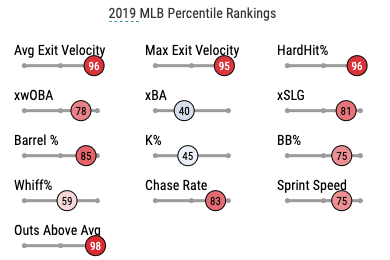
Brent Honeywell combines to save/win 10-plus games
Player | 2021 ADP | 2022 ADP | 2021 Earned $ | 2022 Projected $ |
B. Honeywell | 611 | 684 | $NA | $NYP |
Yusmeiro Petit accomplished this feat with this same Oakland club last season with eight wins and two saves, albeit most of it front-loaded as he had seven of those wins and one of those saves all by May 28. Petit has moved onto free agency and may want to land with a club which has a better chance of a postseason run which leaves a big hole in the Oakland bullpen for someone who can come in and work frequently. Enter Honeywell, who is out of options both figuratively and literally.
Honeywell has pitched a total of 86 innings since the end of the 2017 season having more major surgeries than games started at the big-league level. His star shined brighter than just about any arm in the minors as late as the 2017 AFL season, but came up lame in 2018 camp and needed Tommy John surgery. Some 14 months into his rehab, he fractured a bone in his elbow and missed the rest of that season, and then missed 2020 when he needed a compression procedure on his right ulnar nerve to remove scar tissue from around the nerve. Even with all the time off, he pitched effectively in relief for Triple-A Durham, but saw 4.1 innings of work with the club and was sold to Oakland for cash in November.
The Oakland bullpen and rotation should offer Honeywell opportunities to work frequently should his arm hold up. I believe it speaks to his talents that he was able to pitch competitively in Triple-A despite missing three complete seasons with different arm injuries. He could make for one hell of a comeback story if he could go to Oakland and use the expansive stadium to his advantage while rediscovering what made him great before the injuries.
Seattle Mariners
Cal Raleigh is a top 20 catcher
Player | 2021 ADP | 2022 ADP | 2021 Earned $ | 2022 Projected $ |
C. Raleigh | 698 | 547 | -$15 | $NYP |
Raleigh is one of the few repeat predictions I am using this year as I loved him last year, and he did nothing to change my mind in 2021. He took full advantage of Triple-A West run environments, hitting .324/.377/.608 with 9 homers in 199 plate appearances before moving to Seattle where the numbers were not as great while he lost rookie eligibility. I mean, look at this!
Raleigh had hitting pedigree coming out of Florida State University in the third round of the 2018 draft and has posted a .247/.344/.529 line in 872 minor-league plate appearances before reaching the majors at age 24 last season. He had a very low 13% strikeout rate in Triple-A but nearly tripled that in his time at the big-league level where he was clearly overmatched while excelling defensively. Raleigh may not open the season with the club as he has the curse of options while Luis Torrens does not as the duo competes for the backup role to Tom Murphy. The fact Raleigh may not break camp with the club does not discourage me from drafting him in Draft and Hold leagues as I took him in the 38th round of my most recent DC50. AL-only leaguers can take him with a late reserve pick as well, depending on bench size while mixed leaguers in standard leagues can play the wait-and-see game. Then again, he could still make the club since Torrens also plays some first base and could spell Ty France from time to time. Raleigh has the most offensive upside of any backstop in Seattle.
Robbie Ray finishes outside the top 100
Player | 2021 ADP | 2022 ADP | 2021 Earned $ | 2022 Projected $ |
R. Ray | 323 | 45 | $25 | $20 |
Ray's 2021 season was a fantastic reminder that sometimes everything can come together at once. The one thing Ray did in 2021 which he had never previously done was control his walks and throw harder. 2021 was the first time in his career he had a walk rate below nine percent. Everything else he could control he had previously shown at some point in his career, including the rediscovered velocity from last season which had waned from 2016-19. His strikeout rate continues to be one of the best in the league while he continues to allow home runs, but 90% of his baserunners never scored and that helped him take his ERA from 6.62 to 2.84, lead the league in ERA, innings pitches, strikeouts and WHIP while winning the AL Cy Young. Not bad for a pitcher who went $4 in AL LABR to Ian Kahn, who also happened to win the league.
He parlayed that success into a big new contract with Seattle, which is a better pitching environment for him and his flyball risks than the pre-humidor situation in Arizona or anywhere Toronto called home last season. It will be interesting to see how much a comfortable home environment offsets what has been one of Ray's biggest problems to date as he has but once posted a HR/9 below 1.2 in his career. He allowed 17 homers wherever the nomadic Jays called home last season while allowing 16 on the road. Fourteen of his 33 homers came in the two minor-league stadiums as well as the reconfigured Camden Yards, so one would hope the move west somewhat helps his perpetual gopheritis. So, why am I projecting him to drop back out of the top 100? Perhaps because he reminds me too much of another guy who had a similar magical season in recent memory.
Ray did what he did last year thanks to him finally controlling walks, stranding an incredibly high rate of runners and pitching at a high volume. His previous best for walk rate in a full season was 8.7% in 2016, so while a 23% drop in a single-season walk rate is impressive, I am also pessimistic about this being the new norm for a guy who has spent a majority of his career being generous with walks. His command could fade as quickly as it came together for him last season, and as a two-pitch pitcher, that is risky. His 90% strand rate is the highest rate for any qualified pitcher over the past five full seasons. Below is a table of the top 10 strand rates in that time and the pitcher's ERA in the subsequent season:
PITCHER | LOB% Yr1 | ERA Yr1 | LOB% Yr2 | ERA Yr2 |
90.1% | 2.84 | ?? | ?? | |
88.4% | 2.58 | INJ | INJ | |
88.0% | 1.89 | 71.6% | 4.29 | |
87.4% | 2.31 | 78.7% | 2.73 | |
85.3% | 2.52 | 90.1% | 2.58 | |
Jon Lester | 84.9% | 2.44 | 68.7% | 4.33 |
84.5% | 2.89 | 80.5% | 3.93 | |
84.3% | 2.46 | ?? | ?? | |
84.2% | 3.56 | 78.5% | 3.90 | |
82.5% | 2.16 | 71.7% | 3.55 |
Are you ready to put Ray in the same echelon as Verlander and Kershaw from the past five years? Likely not, but stare long and hard at that third name on the list because this is the pitcher comp I cannot help but shake when considering my 2022 expectations for Ray. Like him, Snell came into 2018 showing problems with walks and homers before putting everything together in a magical season on his way to a Cy Young only to see himself fall back into similar struggles the next season. Snell was 25 while Ray is a more grizzled veteran at age 30, but we are talking about two lefty pitchers with similar flaws who primarily throw fastballs and breaking balls to get their outs. The risk in that profile is if the fastball command wavers, the more experienced hitters are able to lay off the chase-type breaking balls and go hunting for fastballs.
Heading into his Cy Young season, Snell had an ADP of 196 with a min pick of 122 and a max of 303 that winter. The following season, his ADP skyrocketed to 30 with a min pick of 3 and a max pick of 50. Last season, Ray had an ADP of 286 with a min pick of 69 and a max of 475. This season, Ray's ADP is 48 with a min pick of 39 and a max of 59. We are but three seasons removed from seeing how a pitcher puts it all together out of nowhere only to fade back into his previous swim lane, yet here we are again with the market considering Ray the 14th best starting pitcher by ADP over the past few weeks. As Theodore Roosevelt once said, "The more you know about the past, the better prepared you are for the future." I believe Ray is headed toward a 2019-like Snell season rather than doubling up on being a fantasy ace.
Texas Rangers
Willie Calhoun is a top 300 player
Player | 2021 ADP | 2022 ADP | 2021 Earned $ | 2022 Projected $ |
W. Calhoun | 509 | 376 | -$8 | -$8 |
Calhoun is a prime example of a talented player who has failed to produce in recent memory who is then pushed down the charts for the next shiny new toy. Texas acquired Calhoun in the Yu Darvish trade back in 2017 and was praised for acquiring the talented young outfielder who made his major-league debut at age 22 that season. He did not see a large share of playing time until 2019 when he ht .269/.333/.524 in 83 games for Texas, but that was really his last moment of success. His 2020 was pretty much destroyed when a 95-mph fastball from Julio Urias struck Calhoun in the face during spring training and he did not return to the field until the final few weeks of the shortened season. Last season saw another errant pitch wreck his season as a Kris Bubic fastball fractured his left forearm and he later needed surgery on his left ulna as well.
Despite the struggles, Calhoun still managed to hit .301 and slug .506 off fastballs last year with a top 25th percentile max exit velocity. In Cerrano-like fashion, he hit .176 off non-fastballs with two extra-base hits. The current Texas lineup still projects Calhoun to hit leadoff for the club when a righty is on the mound while playing in an outfield rotation which includes Nick Solak and Kole Calhoun at the corners. The DH role is currently an option for Calhoun, but if Texas is not out of money after its big splurge this winter and wants to bring back Nelson Cruz, all bets are off here because the younger Calhoun's path to playing time is much murkier. I like him in the current situation because it is rare we see a projected leadoff hitter on a strong side of platoon this low in the ADP, especially one with his talents. Another 20-homer season is certainly possible, and with the bats behind him in the lineup, he should easily set a new career high in runs should he remain high in the lineup on days a righty is on the mound. He is not going to help you in steals, but Calhoun has the potential to help in three categories and maybe even four depending how the bottom of the Texas lineup performs this year. He could also surprise us and stay in the lineup on a daily basis should he show he is past the mental issues of getting smashed in the face by a lefty fastball from two seasons ago. Simply put, I am willing to give the talent another chance, and given he isn't even in the top 100 for outfielders by ADP, he is a nice endgame target for deeper mixed leagues and certainly in AL-only formats.
Demarcus Evans is the top dollar earner in the Texas bullpen
Player | 2021 ADP | 2022 ADP | 2021 Earned $ | 2022 Projected $ |
D. Evans | 656 | 564 | -$12 | $NYP |
The Texas bullpen is anything but settled. Last season's closing options heading into the season -- Jonathan Hernandez and Jose Leclerc -- are both recovering from Tommy John surgery. Ian Kennedy had the closer role until he was traded away at which point Joe Barlow fought his way to 11 saves on a rather suspect foundation of skills. I am looking at Texas for an opportunity for someone off the radar to step up and take over the saves much like Kennedy did last year out of camp, and I am intrigued by Evans. Yes, there are flaws in his major-league stats, but we are talking 30 innings of work. The minor-league stats are rather entertaining as well because they are as impressive as they are absurd.
Evans has worked 264 innings in the minor leagues with a career ERA of 2.63, a WHIP of 1.21, while holding batters to a .171 average with a 36% strikeout rate and a 17% walk rate. If you had never seen Evans pitch, you are likely envisioning a large man who is pushing triple-digits who has little idea where his stuff is going. That is at least half-true with Evans:
He knows where his fastball is going; he wants to put it up in the zone as it has a lot of spin to it. What it was missing last year was velocity as the 94-96 you see in the video clip above from 2020 was 91-94 last season. A serious lat injury in spring got him off to a slow start from which he never recovered last year. Even with the reduced velocity, his fastball still generated swings and misses with its life. In fact, all three of his pitches, including his new cutter, generated swings and misses at least 20% of the time in the 26 innings of work he had in the majors last season.
A healthy winter should allow him to recover his velocity, and should he find some more command with his stuff, he could resume the journey Jose Leclerc was on with the organization before his arm gave out on him last year.
